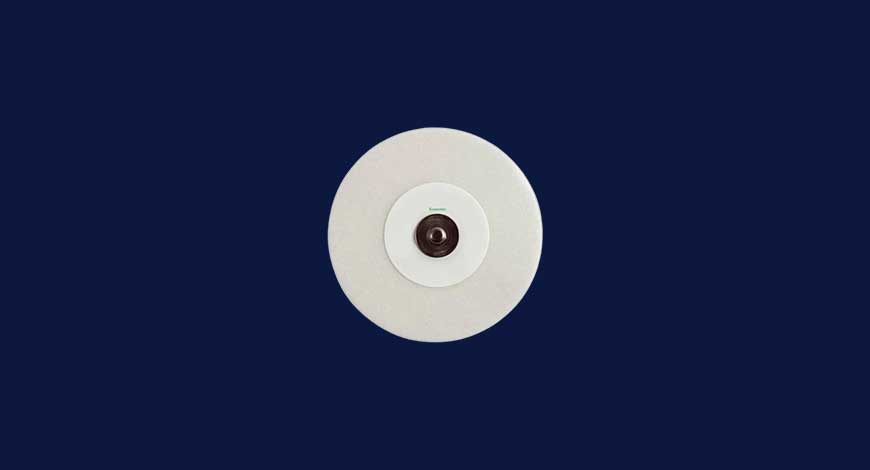Trends
Cardiology electrodes market to surpass USD 193.22 million by 2030

Cardiology electrodes, which are similar to small plastic patches, are positioned on the skin of the arms, chest, and legs. These electrodes are then connected to an electrocardiogram (ECG) machine with lead wires. The ECG machine analyzes the signals from the electrodes and generates an electrocardiogram, which displays the heart’s electrical activity. This diagnostic tool is utilized to detect cardiovascular events like heart attacks, heart failure, irregular heartbeats, endocarditis, and other conditions. Moreover, cardiology electrodes are crucial for verifying the correct placement of a pacemaker and evaluating the effectiveness of heart disease treatment medications. As an example, 3M, a conglomerate corporation based in the United States, provides prewired neonatal electrodes for ECG monitoring of newborn babies under the brand name 3M Red Dot, which are crafted from soft cloth material.
The projected worth of the global market for cardiology electrodes for 2022 is approximately US$127.93 mn, with an anticipated Compound Annual Growth Rate (CAGR) of 5.3% from 2023 to 2030.
Drivers:
The global cardiology electrodes market is projected to experience growth in the coming years due to the efforts of market players who are focusing on the development of new cardiology electrodes. One such example is the use of Pulse Technologies Inc.’s proprietary Hierarchical Surface Restructuring (HSR) technology in Cardionomic’s Cardiac Pulmonary Nerve Stimulation (CPNS) System, which is designed to cure individuals having Acute Decompensated Heart Failure (ADHF). Cardionomic, Inc., a privately held company located in the United States that produces heart failure products, is responsible for the development and manufacturing of this system.
The need for healthcare products and services has significantly increased in the last ten years, especially in developed and high-growth economies, due to the rising aging population. The global market for cardiology electrodes has experienced growth, primarily driven by the increasing prevalence of cardiovascular diseases. As per the Centers for Disease Control and Prevention (CDC) report from July 2022, heart disorder is the primary reason of death in the United States, affecting males, females, and individuals of all ethnicities and races. In 2020, heart disease will have claimed the lives of above 697,000 persons in the United States, accounting for one in every 5 deaths. The primary reason of mortality from heart disorder was coronary heart disease (CAD), which caused 382,820 deaths. CAD affects 7.2% of the population aged 20 and above, which totals 20.1 million people.
Impact of the Covid-19 pandemic:
The financial situation of businesses in all industries has been affected by the global Covid-19 pandemic and the resulting lockdowns in various countries. The healthcare industry’s entire supply chain has been impacted by the pandemic, primarily due to stringent lockdowns in certain countries. Nevertheless, the need for cardiology electrodes is predicted to rise during the Covid-19 pandemic because of the requirement for diagnostic equipment like ECG electrodes to diagnose and manage heart disorder in Covid-19 patients.
As an example, the NCBI (National Center for Biotechnology Information) published an article in March 2021 suggesting that Covid-19 can cause cardiac events like arrhythmias, myocarditis, and acute coronary syndrome. The virus responsible for Covid-19, SARS-CoV-2, is known to induce plaque rupture in blood vessels, leading to ischemia and acute coronary syndrome. The same study also indicates that pre-existing heart conditions can worsen due to Covid-19 infection. As a result, the use of cardiology electrodes as a critical diagnostic tool to monitor the heart health of Covid-19 positive patients is anticipated to increase, potentially contributing to the expansion of the global market for cardiology electrodes during the pandemic.
Recent developments:
In January 2022, Koninklijke Philips N.V., a medical technology company, introduced the industry’s first complete at-home 12-lead electrocardiogram (ECG) solution designed for use in decentralized clinical trials. This innovative solution employs PCA 500 ECG patch data recording technology to enable participants to record data of comparable quality to site-based ECGs while at home. Moreover, it eliminates the need for onsite technicians, home nurses, or frequent site visits by guaranteeing highly secure data transmission.
Bittium, a provider of medical technology solutions, expanded its range of next-generation ECG electrodes in September 2021. These new Bittium OmegaSnap patch electrodes can facilitate ECG measurements with one, two, or three channels (1-CH, 2-CH, and 3-CH) when used with the Bittium Faros ECG device.
Restraint
The market growth of cardiology electrodes is primarily limited by the need for biocompatibility. Since these electrodes come into direct contact with the body, it’s crucial to ensure that lead insulations and other materials used for marking and conducting the leads are biocompatible. Biocompatibility is especially important for skin-contacting materials like electrodes and electro-conductive gel, which must be suitable for their intended purpose.
The process of using cardiology electrodes involves measuring the internal ionic currents to detect and diagnose different cardiovascular disorders. This is achieved by establishing an electrical connection between the monitoring equipment and the patient through the use of the device. GE Healthcare, a medical technology company, emphasized in its report from February 2022 that correct placement of ECG leads is essential for the effective use of this diagnostic tool on both male and female patients. The inaccurate reading of waveforms due to misplacements can lead to the incorrect detection of ailments like myocardial infarction or arrhythmias, resulting in false-positive or false-negative results. Even though electrodes can’t be entirely non-polarizable or polarizable, Ag/AgCl contacts are an instance of a non-polarizable electrode that can’t be used for implantation because of biocompatibility problems. In addition, handcrafted electrodes have reproducibility concerns, further hampering the expansion of the cardiology electrode market during the projected timeframe.
Competitive landscape:
- Promed Technology Co., Ltd.
- Leonhard Lang
- Conmed Corporation
- BPL Medical Technologies
- Koninklijke Philips N.V.
- Nissha Medical Technologies
- GE Healthcare (General Electric Company)
- FARUM sp. z o.o.
- 3M
- COM.
- VectraCor
- Ambu A/S.
- Medtronic plc
- Cardinal Health
- Medico Electrodes International Ltd.
Coherent Market Insights












